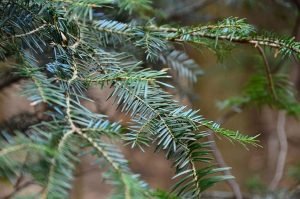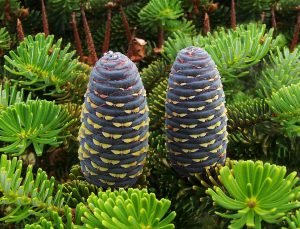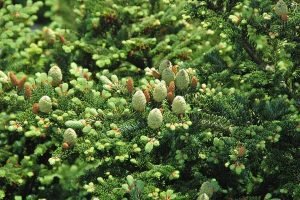Lodgepole pine (Pinus contorta) is a conifer that can grow higher than 15m tall and wider than 8 metres wide. In this growing guide we’ll learn the cultivation details and how to plant Lodgepole pine (Pinus contorta).
This plant has several common names including: lodgepole pine, beach pine, shore pine or twisted-branch pine.
This is a evergreen plant that takes 20-50 years to reach full maturity.
In this article
Plant profile
Common name: lodgepole pine, beach pine, shore pine, twisted-branch pine
Scientific name: Pinus contorta
Plant type: Conifers
Habit: Columnar / Upright
Height: Higher than 15m
Spread: Wider than 8 metres
Foliage: Evergreen
Sunlight: Full Sun
Soil: Loam, Sand
Moisture: Well drained
Garden type: Coastal
Planting type: Low Maintenance
Seasonal colors
| Season | Stem | Foliage | Flower | Fruit |
|---|---|---|---|---|
| Spring | ||||
| Summer | ||||
| Autumn | ||||
| Winter |

How to plant Lodgepole pine (Pinus contorta) – Walter Siegmund, CC BY-SA 3.0, via Wikimedia Commons
[yarpp template=”yarpp-template-genus” require_tax='{“genus”: 1}’]
How to plant
In this section we will learn how to plant Lodgepole pine (Pinus contorta), know its needs in terms of soil, watering and sun exposure.
Soil
Lodgepole pine (Pinus contorta) is a plant that prefers to grow in loam or sand.
-
The loam soil is dark, rich in organic matter but balanced in minerals. It offers the best of all worlds, retaining enough water for the plants, but allowing excess moisture to drain away. This is the most desired type of garden soil, perfect for most plants.
-
Sandy soil is light, porous and very easy to drain. It is a soil poor in organic matter and nutrients. It is composed of relatively large mineral particles that allow water to drain quickly.
As for pH, it is a plant that grows ideally in soils with pH acid or neutral.
Regarding drainage, Pinus contorta likes to grow in well drained soil.
Sunlight
Lodgepole pine (Pinus contorta) should be grown in full sun places.

Cultivation profiles – Growing Lodgepole pine (Pinus contorta) – MPF, CC BY-SA 3.0, via Wikimedia Commons



